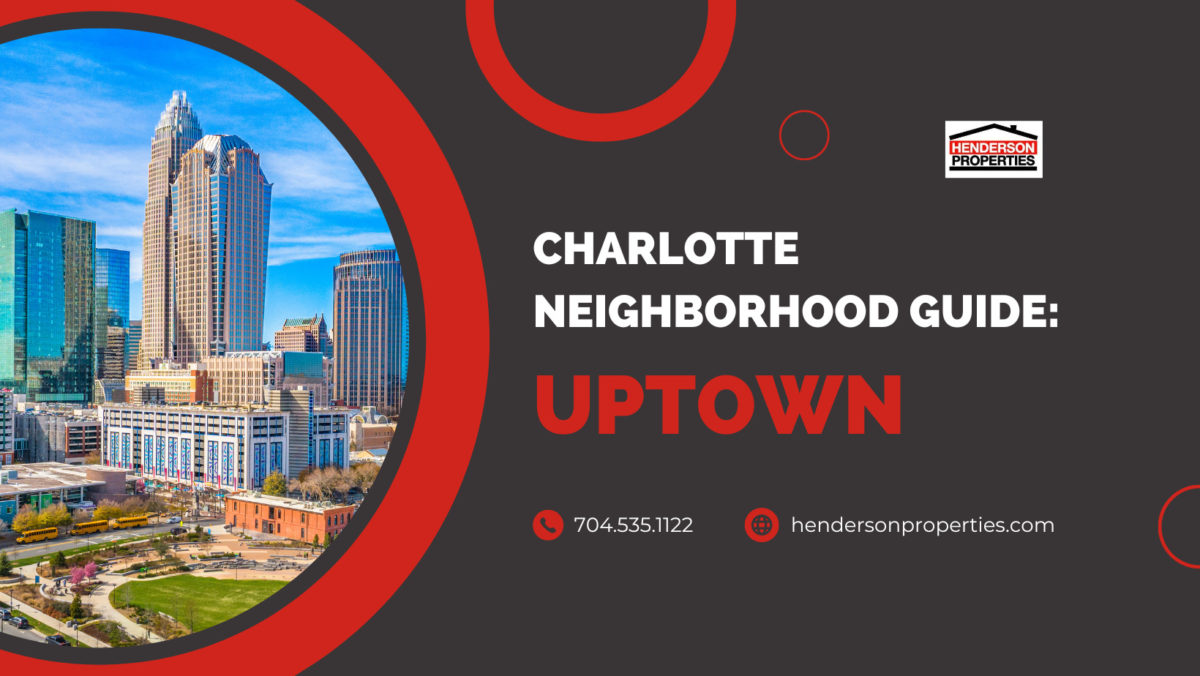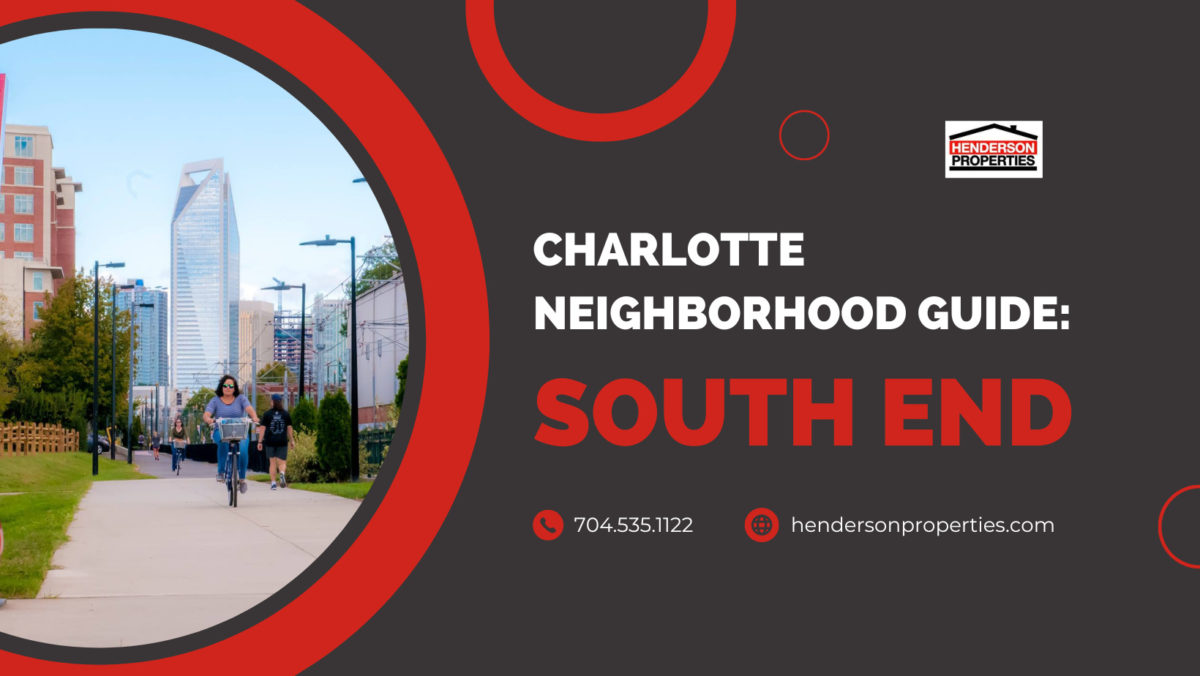Navigating Charlotte: A Neighborhood Guide
Navigating Charlotte: A Neighborhood Guide
Related Articles: Navigating Charlotte: A Neighborhood Guide
Introduction
With enthusiasm, let’s navigate through the intriguing topic related to Navigating Charlotte: A Neighborhood Guide. Let’s weave interesting information and offer fresh perspectives to the readers.
Table of Content
Navigating Charlotte: A Neighborhood Guide

Charlotte, North Carolina, is a thriving metropolis with a rich history and a diverse tapestry of neighborhoods. Understanding the city’s layout and its distinct communities is crucial for navigating its vibrant social scene, exploring its cultural offerings, and finding the perfect place to call home. This guide provides an overview of Charlotte’s neighborhoods, highlighting their unique characteristics and the benefits each offers.
A Geographic Overview
Charlotte’s sprawling urban landscape is generally divided into three distinct areas: Uptown, Midtown, and South End. These central districts are surrounded by a network of diverse neighborhoods, each with its own personality and appeal.
-
Uptown: The heart of Charlotte, Uptown is a dynamic hub of commerce, entertainment, and cultural attractions. Skyscrapers, museums, theaters, and world-class dining establishments define this area. Its walkability and abundance of public transportation make it an attractive option for professionals and urban dwellers.
-
Midtown: Situated south of Uptown, Midtown offers a more relaxed atmosphere with a mix of residential and commercial spaces. It’s known for its trendy boutiques, art galleries, and a growing culinary scene. Midtown provides a balance of urban amenities and a sense of community.
-
South End: A revitalized industrial area, South End boasts a vibrant nightlife, eclectic shops, and a burgeoning craft brewery scene. Its historic architecture, vibrant murals, and lively atmosphere draw young professionals and creative individuals.
Exploring the Neighborhoods
Beyond the central districts, Charlotte’s neighborhoods offer a diverse range of living experiences, catering to various lifestyles and preferences.
North Charlotte:
-
North Davidson: Primarily residential, North Davidson is known for its established neighborhoods, mature trees, and family-friendly atmosphere. Its proximity to the city center makes it a popular choice for commuters.
-
University City: Home to the University of North Carolina at Charlotte, University City is a vibrant area with a young population and a mix of residential, commercial, and educational facilities. Its diverse culinary scene and entertainment options cater to students and young professionals.
-
Huntersville: Located just north of Charlotte, Huntersville offers a more suburban lifestyle with a strong sense of community. Its parks, lakes, and green spaces provide ample opportunities for outdoor recreation.
South Charlotte:
-
SouthPark: A thriving commercial and residential hub, SouthPark is known for its upscale shopping malls, luxury apartments, and high-end restaurants. Its well-maintained infrastructure and proximity to major highways make it a desirable location for families and professionals.
-
Ballantyne: A master-planned community, Ballantyne offers a mix of residential, commercial, and recreational amenities. Its golf courses, parks, and walking trails provide a serene escape from the city’s hustle and bustle.
-
Waxhaw: Located south of Charlotte, Waxhaw is a historic town known for its charming downtown area, family-friendly atmosphere, and proximity to natural attractions.
East Charlotte:
-
Matthews: A historic town with a small-town feel, Matthews boasts a vibrant downtown area, a strong sense of community, and a mix of residential and commercial spaces.
-
Mint Hill: A suburban community with a focus on family-friendly living, Mint Hill offers a mix of residential neighborhoods, parks, and recreational facilities.
-
Weddington: Located south of Matthews, Weddington is a rural community with a strong focus on education and a sense of community. Its rolling hills and quiet streets provide a peaceful escape from the city.
West Charlotte:
-
West Charlotte: A historic neighborhood with a rich cultural heritage, West Charlotte is known for its diverse population, strong sense of community, and affordable housing options.
-
Mountain Island Lake: Located west of Charlotte, Mountain Island Lake offers a scenic escape with opportunities for boating, fishing, and other water sports.
-
Concord: A historic city located west of Charlotte, Concord is known for its NASCAR heritage, its thriving downtown area, and its mix of residential and commercial spaces.
Choosing the Right Neighborhood
Understanding the unique characteristics of each neighborhood is crucial for finding the right fit. Consider your lifestyle, priorities, and budget when making your decision.
-
Family-Oriented: Neighborhoods like North Davidson, Huntersville, and Mint Hill offer family-friendly environments with excellent schools, parks, and recreational facilities.
-
Young Professionals: Areas like Uptown, Midtown, South End, and University City cater to young professionals with their vibrant nightlife, trendy restaurants, and walkable environments.
-
Retirement: Neighborhoods like Ballantyne, Waxhaw, and Matthews offer a peaceful and relaxed atmosphere with access to amenities and healthcare facilities.
-
Budget: Neighborhoods like West Charlotte and Concord offer more affordable housing options while still providing access to amenities and transportation.
Navigating the City
Charlotte offers a comprehensive public transportation system, including buses, light rail, and ride-sharing services. However, owning a car is recommended for navigating the city’s sprawling suburbs.
FAQs
Q: What are the best neighborhoods for families in Charlotte?
A: North Davidson, Huntersville, Mint Hill, and Ballantyne are known for their excellent schools, family-friendly atmosphere, and ample parks and recreational facilities.
Q: What are the most walkable neighborhoods in Charlotte?
A: Uptown, Midtown, and South End offer a walkable environment with access to restaurants, shops, and entertainment options.
Q: What are the most affordable neighborhoods in Charlotte?
A: West Charlotte and Concord offer more affordable housing options compared to other areas of the city.
Q: What are the best neighborhoods for nightlife in Charlotte?
A: South End, Uptown, and Midtown are known for their vibrant nightlife with bars, clubs, and live music venues.
Tips
- Research thoroughly: Explore different neighborhoods online, read reviews, and visit in person to get a feel for the atmosphere.
- Consider your commute: If you rely on public transportation, choose a neighborhood with easy access to bus routes or light rail lines.
- Visit local events: Attend community festivals, farmers markets, or cultural events to experience the neighborhood’s unique character.
- Talk to residents: Connect with people who live in the neighborhood to gain insights into its lifestyle, amenities, and challenges.
Conclusion
Charlotte’s diverse neighborhoods offer a rich tapestry of experiences, catering to a wide range of lifestyles and preferences. By understanding the unique characteristics of each area, you can find the perfect place to call home, explore the city’s vibrant cultural offerings, and enjoy the benefits of living in this thriving metropolis.


:max_bytes(150000):strip_icc()/charlotte-5c37724b46e0fb0001092eb9.jpg)

![Charlotte Neighborhoods Guide [2022] ��️ Best Places to Live in Charlotte](https://cdn-hgpmp.nitrocdn.com/RbkFpsVuachXTwjyvnJgMWpkShFmWqap/assets/static/optimized/wp-content/uploads/2021/05/629fcb0ef6f9c1feae0bb4f127fb1601.charlotte-nc-neighborhoods.jpg)



Closure
Thus, we hope this article has provided valuable insights into Navigating Charlotte: A Neighborhood Guide. We thank you for taking the time to read this article. See you in our next article!